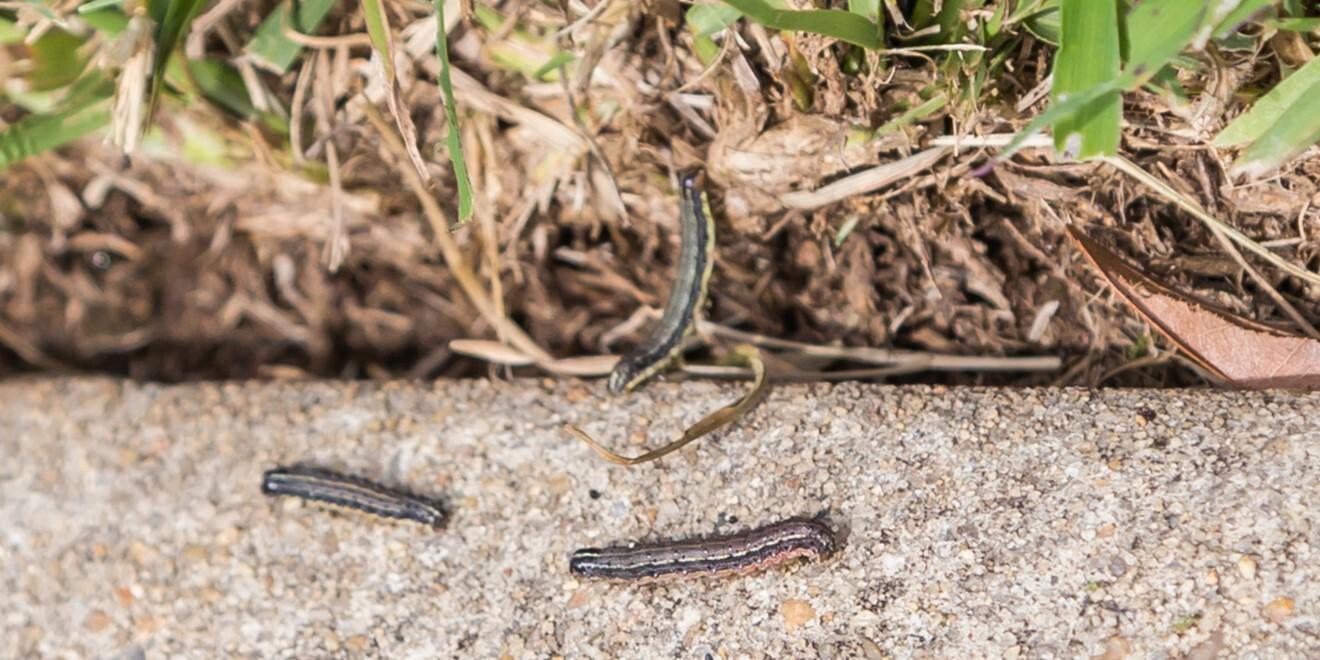Spot and Control Fall Armyworms Before an Infestation
Posted by Mosquito Squad
August 29, 2025

Author: Emma Grace Crumbley, Entomologist
If you’ve got a pasture, a garden, or even just a front lawn, you may have heard horror stories of fall armyworms. Although they’re not dangerous to people or pets, fall armyworms pose a significant threat to grasses and gardens.
Fall armyworms (Spodoptera frugiperda) are the larval form of noctuid moths, and they are identified by their chunky bodies, dark heads, and stripes across their bodies. They’re called fall armyworms because they tend to become more prevalent in late summer through fall months. As adults, these moths feed on nectar from plants and do little damage to foliage. However, as caterpillars fall armyworms have insatiable appetites. This is partly due to their lifecycle. Moth caterpillars undergo complete metamorphosis, just like butterflies, so larvae spend their time eating as much as they can to bulk up before they pupate.
Fall armyworms feed on a variety of grasses, grains, and garden plants. Bermuda grass, blue grass, and other turf grasses are especially susceptible to fall armyworm damage. Crops such as corn, rice, leafy greens, and beans are also often infested by fall armyworms.
Indicators of an Infestation
- Brown patches in grasses can be an early indicator of a fall armyworm infestation.
- More birds and wasps than usual in your yard can also indicate a fall armyworm problem – these animals are actively feeding on them.
Damage
- Skeletonized leaves - Smaller, younger caterpillars feeding on your plants will strip leaves of their color and nutrients as they feed, leaving behind veiny-looking leaves.
- Holes in leaves and stems - Larger, older caterpillars will chew through vegetation when feeding, leaving behind larger holes.
Control
- Outdoor maintenance - fall armyworms are usually found in abundance in shaded, wetter areas of lawns and garden plots. Keeping these areas tidy and adjusting irrigation can help reduce the presence of fall armyworms.
- Call a PMP – Unfortunately, fall armyworms are one of the few pests that are really hard to control on your own. Calling a pest management professional, such as the highly trained technicians at Mosquito Squad Plus, is the next best step to start solving an ongoing infestation and preventing future ones.
For a pest management plan tailored to your outdoor spaces and specific pest problems, call a Mosquito Squad Plus location near you.
